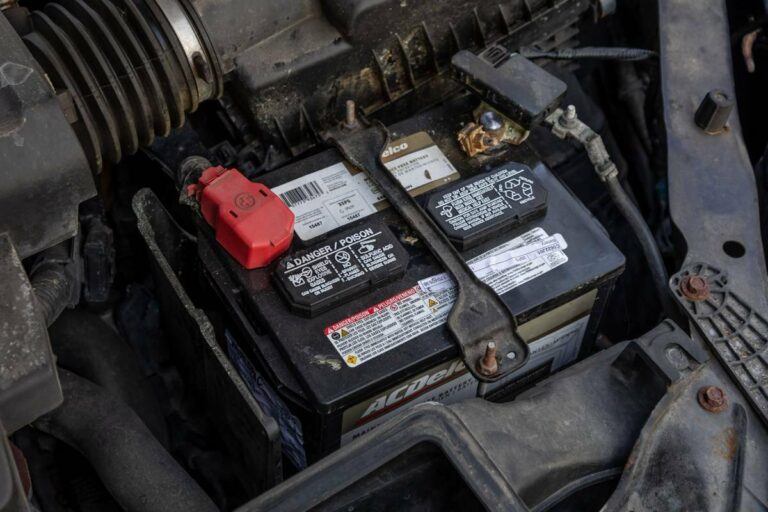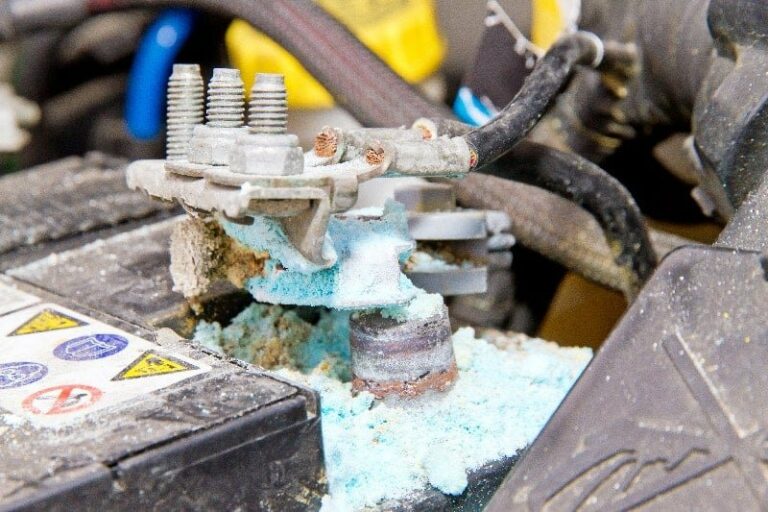How to Prevent Car Battery from Overheating?
Want to prevent your car battery from overheating? We’ve got you covered! Overheating batteries can lead to a plethora of issues, from reduced battery life to potentially dangerous situations. Fortunately, there are some simple yet effective steps you can take to keep your car battery cool and running smoothly. In this article, we’ll share practical tips and techniques to help you tackle this problem head-on, ensuring your battery stays in top shape for longer. So, without further ado, let’s dive right in and explore how to prevent car battery from overheating.
How to Prevent Car Battery from Overheating?
Car batteries are essential components of our vehicles, providing the necessary power to start the engine and run various electrical systems. However, during the hot summer months or in certain driving conditions, car batteries can be prone to overheating. Overheating can lead to reduced battery life, lower performance, and even potential safety hazards. To ensure your car battery stays cool and operates optimally, here are some effective prevention tips:
1. Inspect the Battery Regularly
Regular inspections can help identify early signs of battery problems, including overheating. Here’s what you should look out for:
- Check for bulges or deformities in the battery casing, which may indicate internal damage or excessive heat buildup.
- Inspect the terminals for corrosion or loose connections. Poor connections can lead to increased resistance and heat generation.
- Ensure the battery is properly secured in its tray to prevent excessive vibrations that may damage the internal structure and cause overheating.
2. Maintain Proper Fluid Levels
The electrolyte levels in your battery are crucial for its efficient operation. Here’s how you can maintain proper fluid levels:
- Check the electrolyte levels regularly, especially in non-maintenance-free batteries.
- If necessary, add distilled water to the battery cells to keep the electrolyte at the recommended level. Avoid overfilling, as excessive fluid can lead to electrolyte leakage and subsequent overheating.
3. Protect the Battery from Extreme Temperatures
Extreme temperatures, especially high heat, can significantly impact battery performance and lifespan. Consider these measures to protect your battery:
- Park your vehicle in shaded areas whenever possible to minimize exposure to direct sunlight.
- Use windshield shades or window tinting to reduce the interior temperature, which indirectly affects the battery temperature.
- If you live in an area with extremely hot climates, consider investing in a battery insulation kit to protect it from excessive heat.
4. Optimize Vehicle Cooling System
Maintaining a healthy cooling system not only prevents engine overheating but also helps to regulate the overall temperature under the hood, indirectly benefiting the battery. Here’s what you can do:
- Regularly flush and replace the engine coolant as recommended by the manufacturer.
- Inspect the radiator and clean any debris or dirt that may obstruct proper airflow.
- Ensure the radiator fan is functioning correctly, as it helps cool the engine and dissipate heat from the surrounding components.
5. Drive the Vehicle Regularly
Proper usage and regular driving can benefit your battery’s overall health. Here’s why:
- Extended periods of inactivity can lead to sulfation, a condition where lead sulfate crystals form on the battery plates. These crystals reduce the battery’s capacity and increase its internal resistance, causing it to generate more heat.
- If you don’t drive your vehicle frequently, consider using a battery maintainer or charger to keep the battery charged and in good condition.
6. Limit Electronics Usage While Idle
Minimizing the use of electrical devices when the engine is not running reduces the load on the battery and helps prevent overheating. Some practical tips include:
- Avoid leaving headlights, interior lights, or other electrical components on when the engine is off.
- Turn off any aftermarket accessories or modifications that draw power from the battery.
- Unplug chargers or devices connected to the vehicle’s USB ports when not in use.
7. Avoid Short Trips
Frequent short trips may prevent the battery from fully recharging, leading to a gradual decline in its performance. Here’s why you should avoid them:
- Short trips often do not allow the alternator enough time to fully recharge the battery to its optimal level.
- During shorter drives, the battery may also fail to reach its ideal operating temperature, leading to sulfation and decreased performance over time.
8. Monitor the Battery Temperature
Keeping track of your battery’s temperature can help identify potential overheating issues. Some modern vehicles have built-in temperature sensors, while others rely on external tools. Here’s what you can do:
- Check if your vehicle has a battery temperature sensor. If available, monitor the readings regularly for any abnormal fluctuations.
- Use external temperature monitoring devices specifically designed for batteries.
- If you notice consistently high battery temperatures, consult a professional to identify the underlying causes and take appropriate action.
9. Replace Old or Faulty Batteries
If your battery is nearing the end of its lifespan or showing signs of significant degradation, it’s best to replace it to prevent potential overheating issues. Consider the following:
- Most car batteries have a lifespan of 3-5 years. If your battery is within this range or older, it’s advisable to replace it as a preventative measure.
- If you experience recurring overheating problems despite following preventive measures, the battery may have internal faults, and replacing it is recommended.
10. Seek Professional Assistance
When in doubt or facing persistent battery overheating issues, it’s essential to seek assistance from a qualified mechanic or automotive technician. They can diagnose the problem accurately and provide appropriate solutions, ensuring your battery operates optimally.
Remember, preventing car battery overheating is not only beneficial for your vehicle’s performance but also for your safety. By following these preventive measures and maintaining regular battery inspections, you can maximize your battery’s lifespan, reduce the risk of failures, and enhance your overall driving experience.
What Is Battery Overcharging or Boiling?
Frequently Asked Questions
How can I prevent my car battery from overheating?
To prevent your car battery from overheating, follow these steps:
What causes car batteries to overheat?
Car batteries can overheat due to various reasons, such as:
How can I ensure proper ventilation for the car battery?
To ensure proper ventilation for your car battery, consider the following:
Why is it important to maintain the electrolyte level in the battery?
Maintaining the electrolyte level in the battery is crucial because:
What precautions should I take while charging my car battery?
When charging your car battery, take the following precautions:
What role does the battery case play in preventing overheating?
The battery case plays a vital role in preventing overheating by:
How often should I check my car battery for signs of overheating?
It is recommended to check your car battery for signs of overheating:
Final Thoughts
In conclusion, preventing car battery overheating is crucial for the optimal performance and longevity of the battery. Start by ensuring proper ventilation and managing the ambient temperature around the battery. Regularly inspect and clean the battery terminals to prevent corrosion, which can contribute to overheating. Additionally, avoid overcharging the battery and be mindful of excessive electrical loads on the vehicle. By taking these preventive measures, car owners can protect their batteries from overheating and maximize their lifespan. Remember, it is essential to prioritize the well-being of your car battery to ensure a smooth and trouble-free driving experience.



